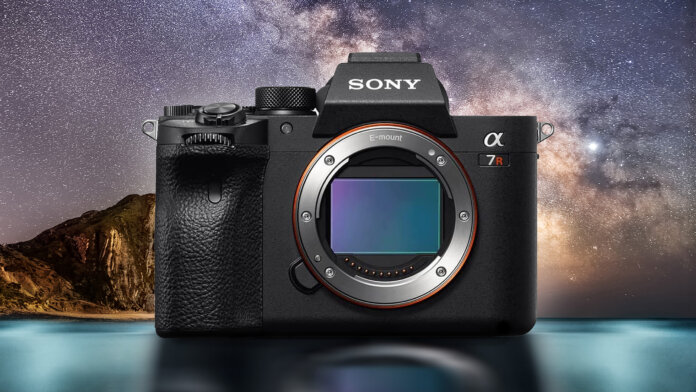Capturing the night sky requires specialized equipment that delivers sharp, vibrant, and high-quality images of celestial objects. Whether you’re a professional astrophotographer or a hobbyist stargazer, choosing the right camera is crucial for creating stunning night sky visuals. This guide provides insights into the best cameras for astrophotography and what features to prioritize.
Related: Best Camera for Macro Photography
What to Consider Before Buying a Camera for Photographing the Night Sky
When selecting a camera for astrophotography, keep these factors in mind:
- Sensor Sensitivity: A camera with high ISO sensitivity is essential for capturing faint light from stars and galaxies.
- Resolution: Higher megapixel cameras provide detailed images, crucial for astrophotography.
- Dynamic Range: A wide dynamic range helps in capturing the subtle differences in light and shadow in celestial scenes.
- Lens Compatibility: Interchangeable lenses allow for flexibility in capturing wide-angle shots or close-ups of celestial bodies.
- Portability: A lightweight and compact camera is easier to transport for outdoor night shoots.
Top 5 Cameras for Photographing the Night Sky
1. Sony A7 III
The Sony A7 III is a versatile full-frame mirrorless camera renowned for its exceptional low-light performance. Its advanced features make it a favorite among astrophotographers.
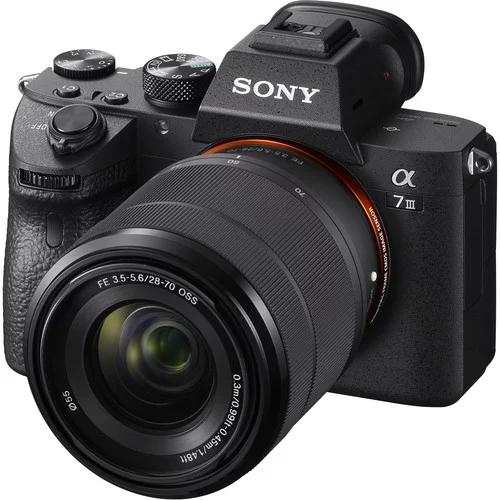
This camera features a 24.2MP sensor with impressive ISO capabilities, ensuring minimal noise even at high ISO settings. Its fast autofocus and long battery life make it ideal for extended night sky photography sessions.
Related: Best Camera for Automotive Photography
Why This Camera is Best for Night Sky Photography
The Sony A7 III excels in low-light conditions. For example, its high ISO range allows you to capture detailed images of the Milky Way or faint star clusters without significant noise.
Key Features
- 24.2MP full-frame sensor
- ISO range up to 204,800
- 4K video recording
- Dual SD card slots
- Long battery life
Pros
- Exceptional low-light performance
- Compact and portable
- High dynamic range
- Wide lens compatibility
Cons
- Limited touchscreen functionality
- Expensive for beginners
Related: Best Camera for Wildlife Photography Beginner
2. Nikon D850
The Nikon D850 is a full-frame DSLR that offers high-resolution imaging and excellent dynamic range, making it ideal for capturing detailed shots of the night sky.
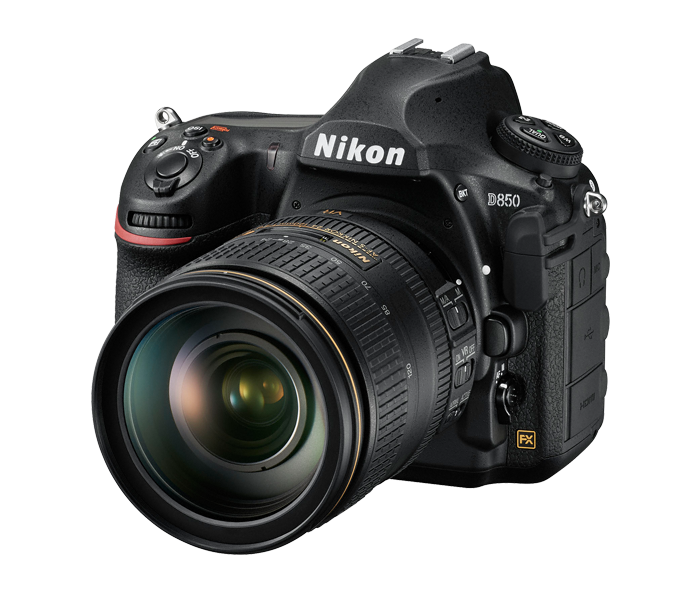
This camera features a 45.7MP sensor and a wide ISO range, ensuring sharp and vibrant images of stars and galaxies. Its robust build and long exposure capabilities make it perfect for outdoor astrophotography.
Why This Camera is Best for Night Sky Photography
With its high resolution and dynamic range, the Nikon D850 is perfect for capturing intricate details of celestial phenomena. For instance, its ability to handle long exposures ensures clear and noise-free images of star trails.
Related: Best Camera for Underwater Photography
Key Features
- 45.7MP full-frame sensor
- ISO range up to 25,600
- 4K UHD video recording
- Long exposure capabilities
- Weather-sealed body
Pros
- High-resolution images
- Excellent dynamic range
- Durable and weather-resistant
- Great for long exposures
Cons
- Heavy and bulky
- Expensive for hobbyists
Related: Best Camera for Interior Photography
3. Canon EOS R6
The Canon EOS R6 is a mirrorless camera that delivers outstanding performance in low-light conditions. Its advanced features and ease of use make it a popular choice for astrophotographers.
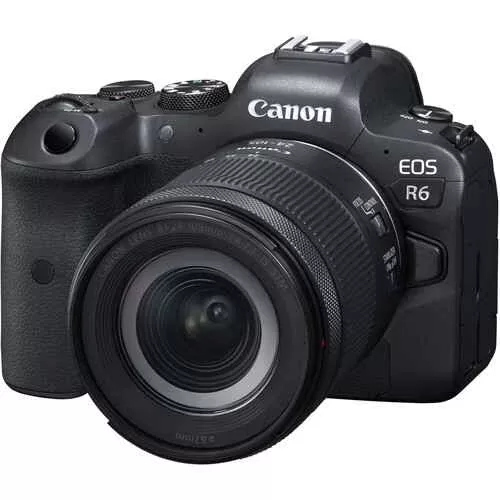
This camera boasts a 20.1MP full-frame sensor and an ISO range that excels in capturing dim light. Its image stabilization and fast autofocus ensure sharp and detailed night sky images.
Why This Camera is Best for Night Sky Photography
The Canon EOS R6 combines portability and performance. For example, its image stabilization is ideal for handheld astrophotography, while its high ISO range captures faint stars with precision.
Key Features
- 20.1MP full-frame sensor
- ISO range up to 102,400
- 4K video recording
- Image stabilization
- Wi-Fi and Bluetooth connectivity
Pros
- Great low-light performance
- Compact and lightweight
- Advanced autofocus system
- User-friendly interface
Cons
- Limited resolution for large prints
- Shorter battery life compared to DSLRs
4. Fujifilm X-T4
The Fujifilm X-T4 is a versatile mirrorless camera known for its excellent image quality and advanced features. Its lightweight design makes it ideal for outdoor astrophotography.
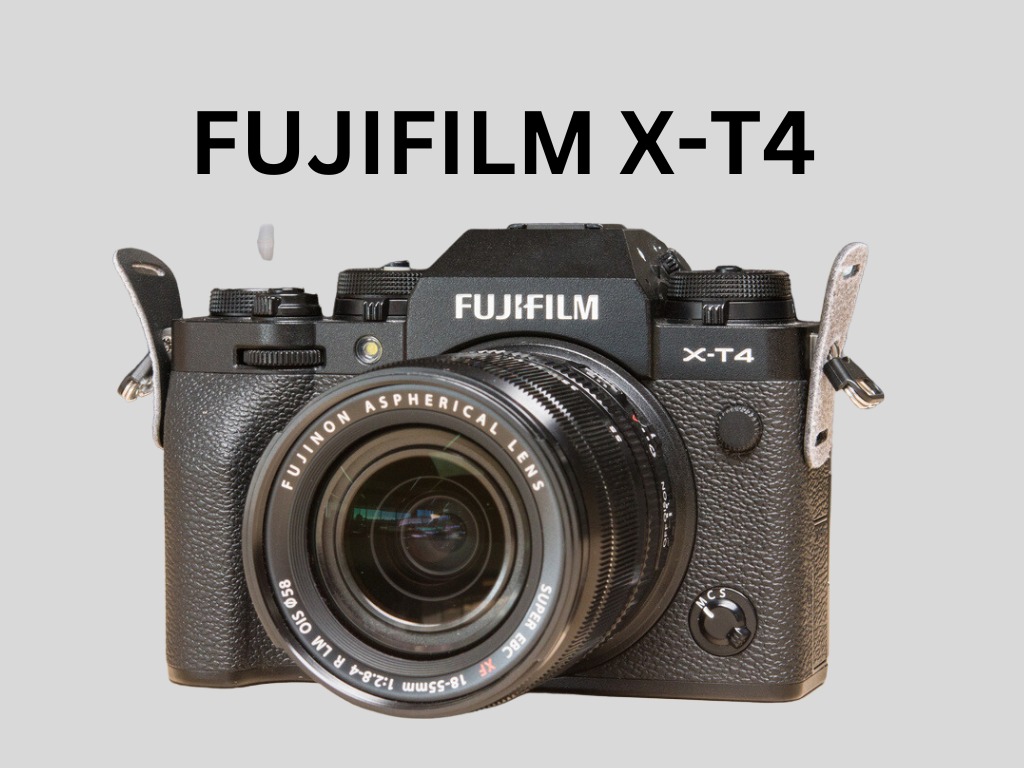
This camera features a 26.1MP APS-C sensor and impressive ISO capabilities. Its film simulation modes and image stabilization add creative flexibility for capturing unique night sky shots.
Why This Camera is Best for Night Sky Photography
The Fujifilm X-T4 offers a perfect blend of portability and performance. For instance, its compact design is great for remote stargazing locations, while its high ISO range ensures detailed captures of constellations.
Key Features
- 26.1MP APS-C sensor
- ISO range up to 12,800
- 4K video recording
- Image stabilization
- Weather-resistant body
Pros
- Compact and portable
- Excellent image quality
- Versatile shooting modes
- Durable build
Cons
- Smaller sensor compared to full-frame cameras
- Limited battery life
5. Pentax K-1 Mark II
The Pentax K-1 Mark II is a full-frame DSLR designed with astrophotography in mind. Its unique features and rugged build make it a reliable choice for night sky enthusiasts.
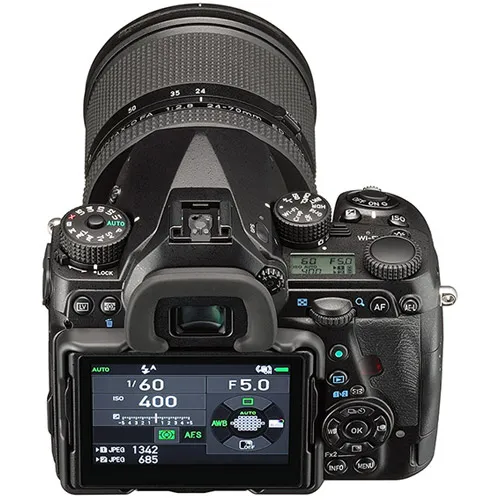
This camera features a 36.4MP sensor with a special AstroTracer mode that compensates for Earth’s rotation, ensuring sharp images of stars and galaxies. Its weather-sealed body and high ISO range add to its appeal.
Why This Camera is Best for Night Sky Photography
With its AstroTracer mode, the Pentax K-1 Mark II simplifies capturing starry skies. For example, it allows you to take long-exposure shots without star trails, making it ideal for deep-sky photography.
Key Features
- 36.4MP full-frame sensor
- ISO range up to 819,200
- AstroTracer mode
- Weather-sealed body
- Articulating LCD screen
Pros
- Unique features for astrophotography
- Excellent image quality
- Rugged and durable design
- High ISO performance
Cons
- Complex menu system
- Heavy and bulky
Conclusion
Choosing the best camera for photographing the night sky depends on your budget, skill level, and specific needs. The Sony A7 III and Nikon D850 are excellent for professionals, while the Canon EOS R6 and Fujifilm X-T4 cater to enthusiasts and hobbyists. For advanced astrophotography, the Pentax K-1 Mark II offers specialized features. Invest in a camera that matches your goals to capture the breathtaking beauty of the night sky.

